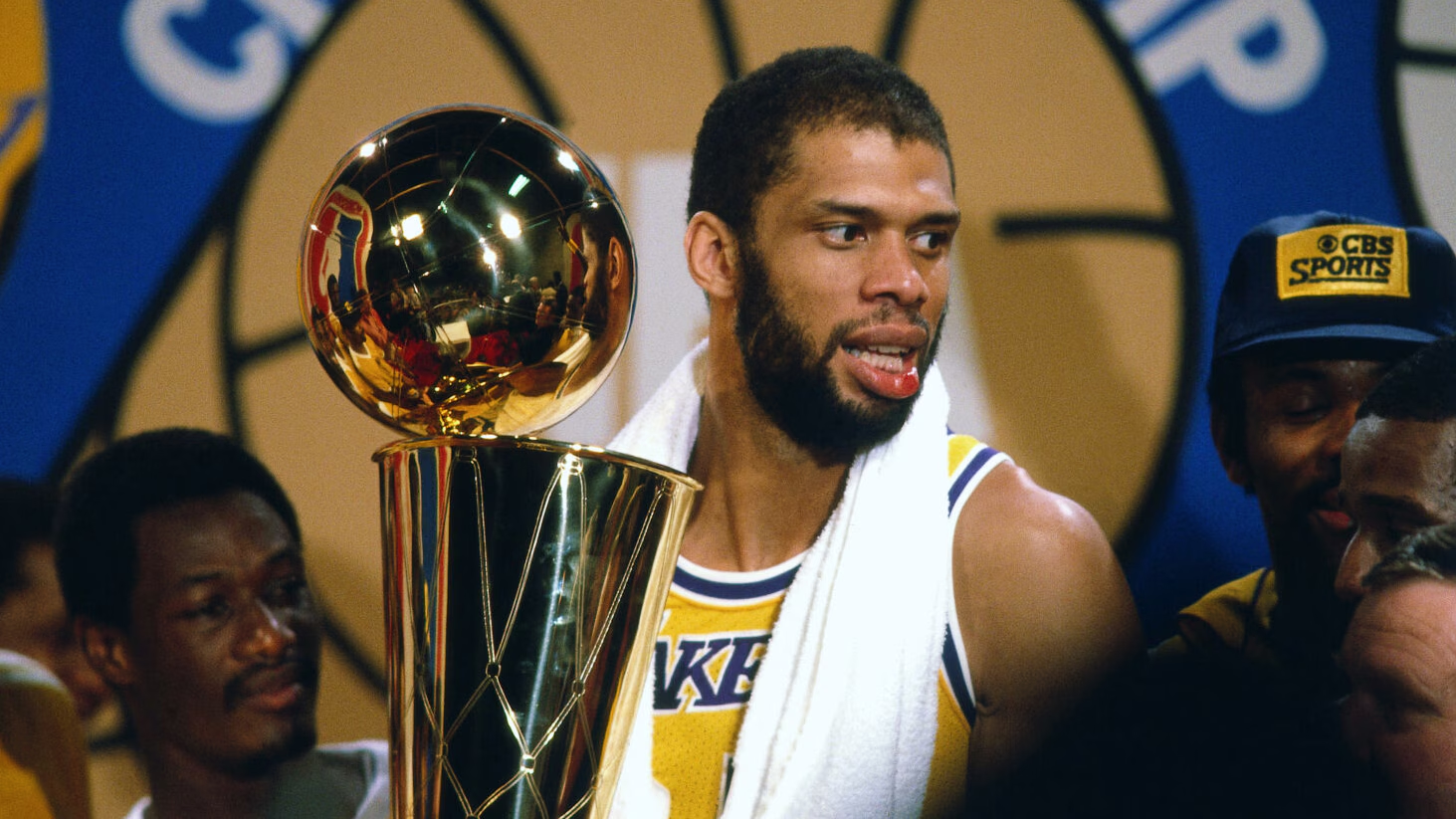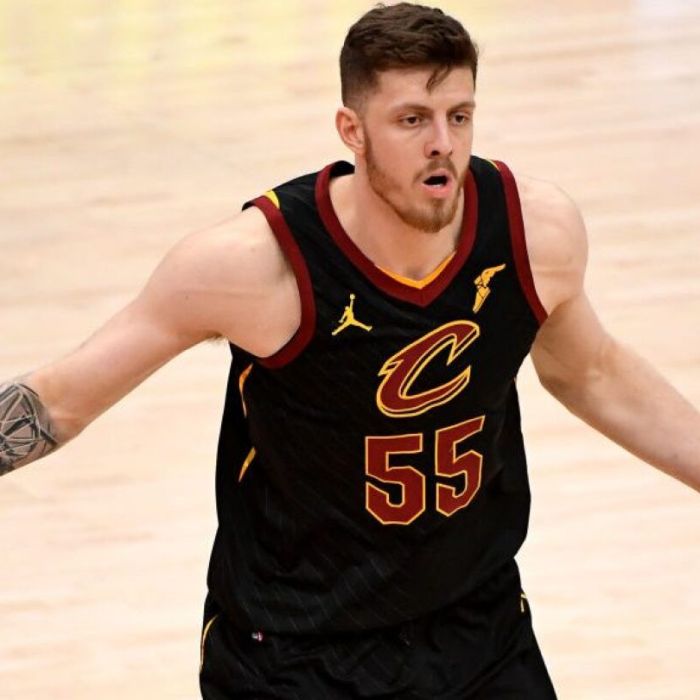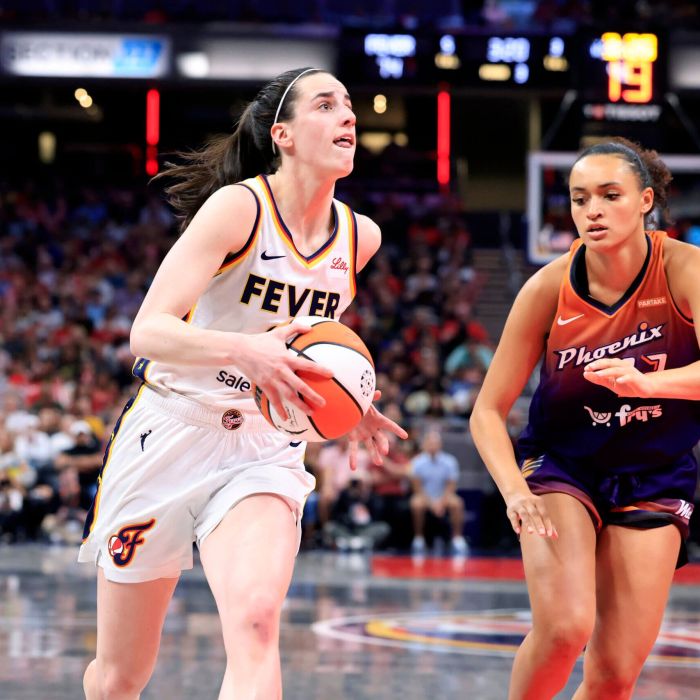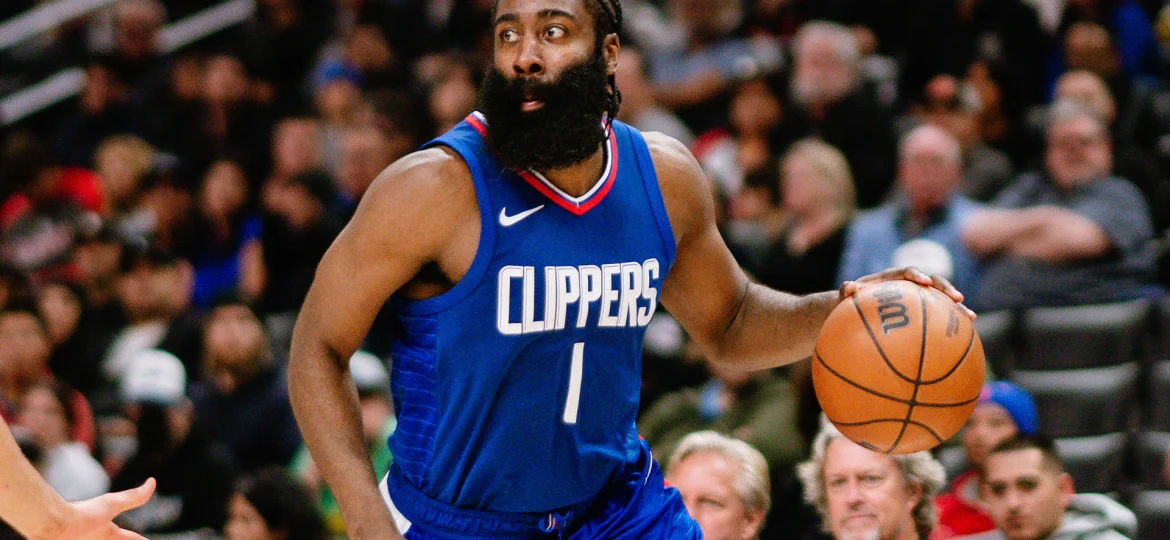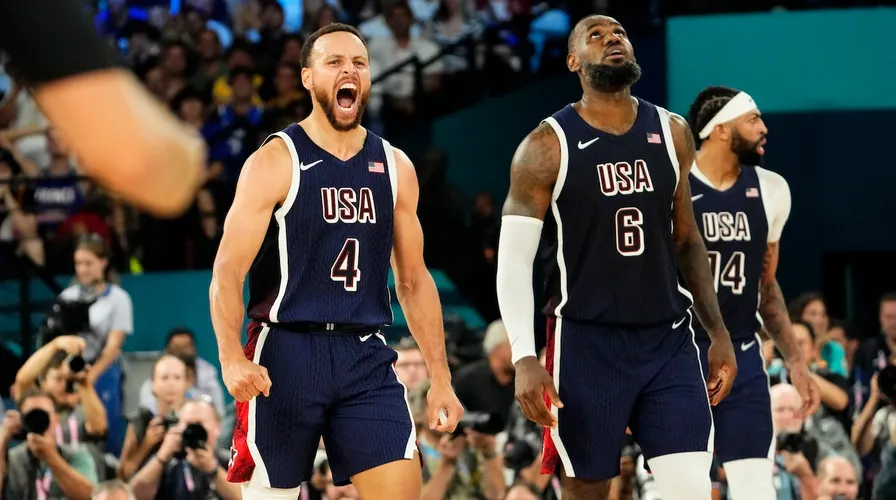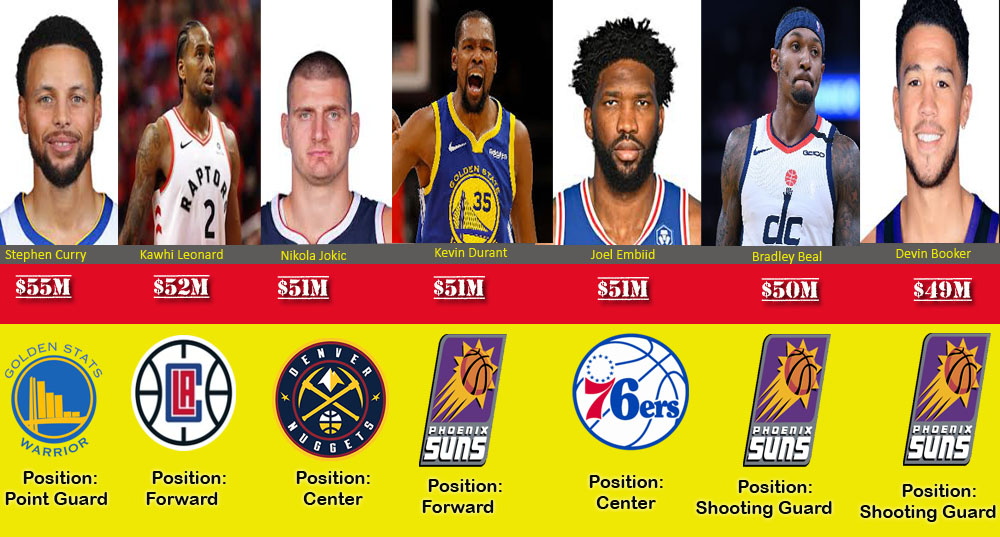Kareem Abdul-Jabbar Early Childhood and Education
Kareem Abdul-Jabbar, born Ferdinand Lewis Alcindor Jr. on April 16, 1947, in New York City, grew up in the Harlem neighborhood. His parents, Cora Lillian and Ferdinand Lewis Alcindor Sr., were instrumental in his early development. His father was a transit police officer and jazz musician, and his mother was a department store clerk.
From a young age, Alcindor was noticeably tall and athletic. By the time he was in eighth grade, he stood 6’8″. He attended the prestigious Power Memorial Academy, where he led the basketball team to three straight New York City Catholic championships and a 71-game winning streak. His high school dominance earned him a scholarship to UCLA, where he played under the legendary coach John Wooden.
Kareem Abdul-Jabbar College Stardom
At UCLA, Alcindor quickly became a collegiate basketball sensation. He led the Bruins to three consecutive NCAA championships from 1967 to 1969 and was named the tournament’s Most Outstanding Player each year. His dominance was so profound that the NCAA banned the dunk shot from 1967 until 1976, a rule change often referred to as the “Alcindor Rule.”
During his college career, Alcindor refined his signature skyhook shot, a nearly unblockable weapon that would become synonymous with his game. He graduated with a degree in history, having firmly established himself as the best player in college basketball.
NBA Draft and Early Career
In 1969, Alcindor was the first overall pick in the NBA draft, selected by the Milwaukee Bucks. His impact was immediate; he won the NBA Rookie of the Year award and led the Bucks to their first NBA championship in 1971. That same year, he converted to Islam and adopted the name Kareem Abdul-Jabbar, meaning “generous servant of the mighty.”
Abdul-Jabbar’s early years in the NBA were marked by his dominance on both ends of the court. He won three MVP awards with the Bucks and solidified himself as the best big man in the league. However, despite his individual success, he sought a larger market and requested a trade.
Kareem Abdul-Jabbar Golden Era with the Los Angeles Lakers
In 1975, Abdul-Jabbar was traded to the Los Angeles Lakers, where he would spend the remainder of his career. This move marked the beginning of what many consider the golden era of his career. Teaming up with Magic Johnson in the 1980s, Abdul-Jabbar led the Lakers to five NBA championships (1980, 1982, 1985, 1987, 1988).
His rivalry with Boston Celtics’ center Robert Parish and forward Larry Bird defined the NBA during this period. Abdul-Jabbar’s Lakers and Bird’s Celtics met in the NBA Finals three times in the 1980s, with the Lakers winning two of those matchups. This rivalry helped popularize the NBA globally.
Achievements and Records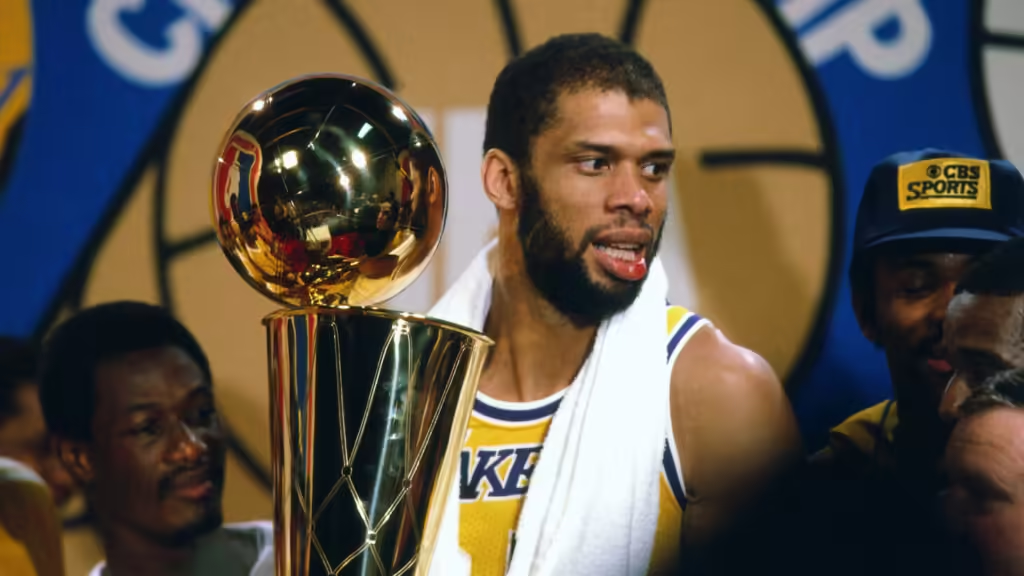
Abdul-Jabbar’s list of achievements is extensive. He retired as the NBA’s all-time leading scorer with 38,387 points, a record that still stands. He won six MVP awards, the most in NBA history, and was a 19-time All-Star. His career averages include 24.6 points per game, 11.2 rebounds per game, and 3.6 assists per game.
He was named to the All-NBA First Team ten times and the NBA All-Defensive First Team five times. His number 33 jersey was retired by both the Milwaukee Bucks and the Los Angeles Lakers, cementing his legacy with both franchises.
Personal Life and Interests
Abdul-Jabbar is not just known for his basketball prowess but also for his intellect and cultural contributions. An avid reader and history enthusiast, he has written several books, including his autobiography “Giant Steps” and “Kareem,” a memoir that explores his life and career. He is also a regular columnist for various publications, where he discusses social and political issues.
Abdul-Jabbar is also an actor, appearing in movies such as “Game of Death” with Bruce Lee and the comedy “Airplane!” He has made numerous television appearances and has worked as a coach and mentor for young players.
Kareem Abdul-Jabbar Net Worth
As of 2023, Abdul-Jabbar’s net worth is estimated to be around $20 million. His wealth comes from his NBA salary, endorsements, book royalties, and appearances. Despite his success, he has faced financial challenges, including a significant lawsuit in the 1980s over a failed business venture.
Abdul-Jabbar has been active in philanthropy, particularly in education. He established the Skyhook Foundation, aimed at providing educational opportunities and resources to underserved communities.
Controversies and Challenges
Abdul-Jabbar’s career was not without controversy. His outspoken nature and conversion to Islam in the 1970s were met with criticism and misunderstanding. He faced racial and religious discrimination throughout his career. Additionally, his sometimes aloof and reserved personality led to misunderstandings with the media and fans.
In the latter part of his career, Abdul-Jabbar battled with migraines and other health issues, which occasionally affected his performance. Despite these challenges, he remained a dominant force on the court.
Retirement and Legacy
Kareem Abdul-Jabbar retired in 1989 at the age of 42, after 20 seasons in the NBA. His farewell tour was celebrated by fans and peers alike, honoring his contributions to the game. In retirement, he has remained an influential figure in sports and society.
In 2016, he was awarded the Presidential Medal of Freedom by President Barack Obama, the highest civilian honor in the United States. This accolade was a testament to his impact beyond basketball, including his efforts in social justice, education, and cultural understanding.
Kareem Abdul-Jabbar Life in 2024
As of 2023, Abdul-Jabbar continues to be an active voice in social and political discourse. He writes columns, gives speeches, and participates in various public engagements. He is also involved in mentoring young athletes, emphasizing the importance of education and social responsibility.
Abdul-Jabbar’s life story is one of triumph over adversity, a journey from Harlem to becoming one of the most revered figures in sports history. His legacy is not just defined by his skyhook shot or his scoring records but by his unwavering commitment to his principles and his contributions to society.
Summary of Stats and Achievements
- Games Played (GP): 1,560
- Minutes Per Game (MPG): 36.8
- Points Per Game (PPG): 24.6
- Rebounds Per Game (RPG): 11.2
- Assists Per Game (APG): 3.6
- NBA Championships: 6 (1971, 1980, 1982, 1985, 1987, 1988)
- MVP Awards: 6
- All-Star Appearances: 19
- All-NBA First Team Selections: 10
- NBA All-Defensive First Team Selections: 5
- Scoring Leader: 2 times
- Rebounding Leader: 1 time
Conclusion
Kareem Abdul-Jabbar’s career is a shining example of excellence in basketball. His ability to dominate on the court, coupled with his intellectual pursuits and social activism, makes him a unique and inspirational figure. His journey from Ferdinand Lewis Alcindor Jr. to Kareem Abdul-Jabbar is a story of transformation, resilience, and unyielding commitment to his beliefs and passions.


